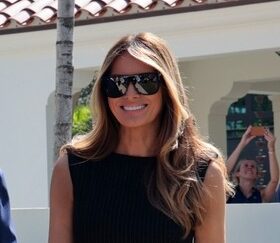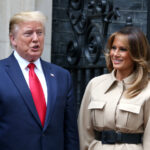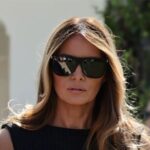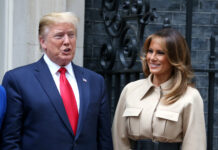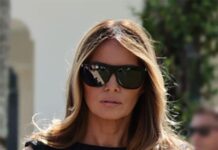In her newly published memoir, “Melania,” former First Lady Melania Trump confronts the longstanding rumors about her son Barron’s supposed autism.
The rumors began in November 2016 when comedian Rosie O’Donnell shared a viral video on Twitter, hinting that Barron might be autistic. Her tweet said, “Barron Trump autistic? If so — what an amazing opportunity to bring attention to the AUTISM epidemic.”
Many people were quick to disapprove of O’Donnell’s actions, arguing that it was inappropriate to discuss a child’s health publicly. Critics believed O’Donnell was using Barron to indirectly target his father, Donald Trump, with whom she had a public disagreement. O’Donnell later clarified that her intention was to raise awareness about autism, drawing from her personal experience, as her daughter had recently been diagnosed with the condition.
However, Melania Trump saw things differently. In her memoir, she remembers the personal toll these rumors had on her family, characterizing them as pure malice. She viewed O’Donnell’s comments as an attack on her son due to O’Donnell’s animosity towards her husband. “No apology can undo the harm inflicted upon him,” Melania writes, indicating that the online and real-world bullying Barron faced inspired her to start the “Be Best” campaign.
The “Be Best” initiative, launched in 2018, focused on child welfare, online safety, and anti-bullying, advocating for a positive digital environment for young people. However, the campaign faced several challenges. Critics pointed out the inconsistency between the initiative’s anti-bullying message and President Donald Trump’s tendency to use social media to publicly criticize opponents. This apparent contradiction attracted criticism and weakened public support for the campaign.
Melania also faced strategic obstacles; her attempts to engage tech companies in online safety discussions encountered resistance, especially during a 2018 White House meeting.
Nowadays, Melania reports that Barron is a freshman at New York University’s Stern School of Business. Opting for privacy and avoiding the public eye, he chose to live at Trump Tower instead of a dormitory. Melania describes him as a “remarkable young man” with a keen intellect and diverse interests, including sports and business.
The release of Melania’s memoir coincides with Donald Trump’s re-election campaign. While Melania generally avoids the limelight, she stresses that safeguarding Barron’s privacy and welfare has always been her top concern.
The memoir also explores her views on various matters from her time as First Lady, including her disagreement with the Republican position on reproductive rights.
The book, rich with photos of the former fashion model, chronicles Melania’s life, starting with her childhood in Yugoslavia (now Slovenia) during the Cold War, where her father was a prosperous businessman. It traces her move to New York at the age of 26 and her life with Donald Trump.
While her claims are not as bold as Donald Trump’s, Melania firmly believes that the 2020 election was rigged. In her book, she articulates her concern that leading up to the November 2020 election, the media, Big Tech, and the deep state were all determined to prevent Trump from being elected by any means necessary.
She discusses the “suspicious voting activity reported across the country” on Election Day but omits the fact that about 30 judges—some appointed by her husband—dismissed Trump’s election lawsuits for lack of merit.
She also neglects to mention the federal and state criminal charges against the former president in Washington, D.C. and Georgia, related to his efforts to overturn his 2020 loss to President Joe Biden.
Melania Trump is not the first first lady to disagree with her husband on critical issues. Laura Bush also supported abortion rights while her husband, George W. Bush, campaigned and governed as an opponent of abortion.
Recent polls show that Donald Trump, who has claimed that the right to abortion was revoked due to the three Supreme Court justices he appointed, is losing among women voters to Kamala Harris.
Melania frames the conversation around personal freedom, stating, “A woman’s fundamental right to individual liberty, to her own life, grants her the authority to terminate her pregnancy.”

